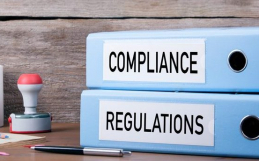On 12 June 2021 the Treasury Laws Amendment (Registries Modernisation and Other Measures) Act 2020 (Cth) (‘the Act’) was passed by the Australian federal parliament. The new legislation established that all directors of Australian companies will need to be identified by a director identification number (DIN).
The main purpose of the DIN is to ensure that all directors have their identity verified, and through this, directors are prevented from hiding behind aliases or variations of their name. This regime also seeks to increase transparency in the actions of directors across companies. A DIN is permanent and will never change once a director has obtained one.
Company directors appointed on or before 31 October 2021 will be required to apply for a DIN before 30 November 2022.
From 5 April 2022, a director must apply for a DIN prior to their appointment as a director.
Who must apply?
A DIN must be applied for personally by each director or alternate director of a company that is a body corporate or registered foreign company that is a body corporate. Directors of Aboriginal and Torres Strait Islander corporations which are registered under the CATSI Act must also apply. This regime includes directors of registered charities and not-for-profits.
Who does not need to apply?
Individuals do not need to register for a DIN if they are not appointed as a director under the Corporations Act 2001 (Cth) (irrespective of whether Director is in your job title).
How do you apply?
If you are an Australian resident, you should apply online using the MyGovID app. You can apply for your unique DIN at https://mygovid.gov.au/AuthSpa.U/index.html#login. To complete the application you will need to supply the following pieces of documentation:
- Tax file number;
- Residential address as registered with the ATO;
- Bank account details;
- Superannuation account details;
- A dividend statement with the investment reference number; and
- A PAYG Summary issued in the last two years.
Alternatively, you can apply over the phone or you can submit a paper application. Please be advised that you should never send an original document when submitting a paper application as these will not be returned to you. If you choose either of these application methods, you must supply the following documents as proof of your identity:
- Certified copy of one of the following documents:
- Australian birth certificate;
- Australian passport;
- Australian citizenship certificate;
- ImmiCard; or
- Visa (if you are using a foreign passport but reside in Australia).
- Certified copy of both of the following documents:
- Australian driver’s licence or learner’s permit; and
- Medicare card.
For non-Australian residents, you may apply over the phone or by submitting a paper application. In this instance, you must supply the following documents as proof of your identity:
- Certified copy of one of the following documents::
- Foreign birth certificate;
- Foreign passport;
- Australian full birth certificate; and
- Australian passport.
- Certified copy of one of the following documents::
- National phot identification card;
- Foreign government identification;
- Driver’s licence; and
- Marriage certificate.
Penalties for lack of compliance
There are significant civil and criminal penalties for failing to comply with DIN requirements. Under the Actindividuals can receive the following maximum penalties for a lack of compliance:
- Failure to have a DIN when required to do so: a fine to the value of 25 penalty units.
- Failure to apply for a DIN when directed to do so by the Commonwealth Registrar: a fine to the value of 25 penalty units.
- Applying for multiple DINs or misrepresenting DIN: a fine to the value of 100 penalty units or 12 months imprisonment or both.
As at the date of writing, 1 penalty unit is $222.
If a director resigns, they must notify the ASIC within 28 days. A director’s resignation is only effective on the date of lodgement of the notice to ASIC. Failure to meet this requirement will attract a late lodgement fee.
At Bryks Lawyers, we are experienced in advising clients on compliance with director duties, obligations and ASIC requirements. Contact us today to see how we can assist you!







